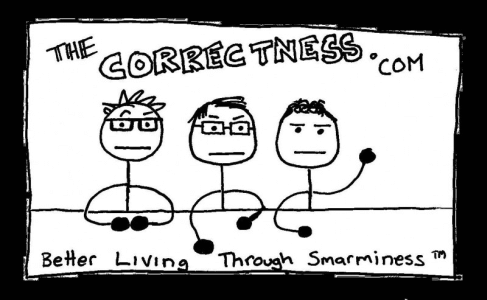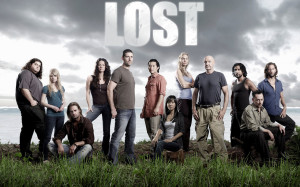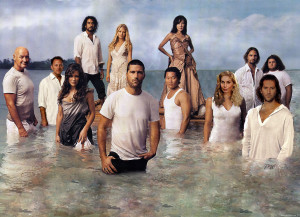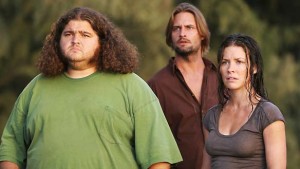One of the things I think we got away from here at The Correctness was simply writing about things we love, and are interested in. Things start to get busy, and we rely on “feature” stuff like the Smackdown, which are a lot of fun, but not really day today stuff.
So, in the last few months, I’ve spent more time online at The AV Club’s TV Club, and less time on Fark. There’s a whole other article as to why, but in a nutshell, Fark seems to be getting ‘meaner’, and way more sexist that it was, and TV Club comments are just funnier, and more clever. One of their features is rewatching older shows, and reviewing a couple of episodes a week. One of those show is LOST.
Unless you’ve lived under a rock since 2004, you likely have a least a passing familiarity with the show and it’s ‘trapped on a desert island’ premise. More likely, you’re familiar with the outcry at it’s completion, with the internet exploding in anguish over unsatisfactory answers etc.
I watched the show when it aired, dropped off briefly in the draggy and dull Season 3, then caught up and watched until it’s completion. I was thoroughly hooked by the questions, situations, and the masterful way they end each episode leaving you wanting more.
What really shines through on a rewatch, where one is not focusing on what the mysteries are, and pouring over details for clues, is how great the show was at simply telling stories. By the end of the first season, we have a great understanding of the characters, their flaws, and what they are looking for. The advent of binge-watching bring out themes and details that were likely lost (pardon the pun) the first time through. A few examples are the great number of episodes that begin with an eye (as the pilot did), “don’t tell me what I can’t do” (an echoing of the pre-determination debate that fills the early days of the hatch), and “I’ll see you in another life”, a sentiment brought up a number of times.
I’m getting a much better sense this time through of the themes of family, loss, redemption, and of course, faith. There are so many great moments in the show where ideas and opinions butt heads, and there isn’t always a ‘right’ side. I’m seeing a wonderful ‘meta’ level as well, where characters are yearning for answers, and are often told that the answers might not be important, it’s more about the effort, the journey, what is learned and held true in that attempt.
Characters like Ana Lucia, who was a blur the first time through, benefit from a rewatch. I start to think of the characters and stories as part of the orchestra, and the writers choose which strings to play, which themes to dwell on. It becomes pretty clear they could have played in the character’s backstories for many more years, if not for the rampant pressures to finish the plot.
Of course there are themes and plotlines that petered out, or just didn’t stick the landing, but for each of those, there are many more that did. In addition to that, the ever-expanding world of the Island brought in greater depth to the storytelling.
Did they answer every question? No. Did they tie everything up neatly? Not so much. But the journey is well worth it, there’s a goldmine of great storytelling along the way.
If you haven’t seen the show, check it out. It’s available on streaming from Netflix, and likely other places as well.



